What The Fact?
Has only 1% of the 1.3 billion vaccines injected globally been administered in Africa?
COVID-19 testing in Madagascar. Photo by Henitsoa Rafalia via World Bank via Flickr CC
- Gina Dorso
The Claim
On May 30, Guardian journalist Peter Beaumont of the Guardian reported
Only 1% of the 1.3 billion vaccines injected around the world have been administered in Africa.”
The article goes on to note that only “28 million doses have been delivered on the continent so far – that’s less than 2% of the continent’s population – at a time when some wealthier countries have vaccinated well in excess of half their populations.”
Beaumont continues by saying that “vaccine nationalism”, which has been described as vaccine hoarding, queue-jumping, and buying up supply, has led to the inequality in distribution. Among other factors are the distribution of vaccines coming out of the Serum Institute in India being redirected locally to address the Delta variant (previously known as the Indian variant) outbreak, and inadequate healthcare infrastructure as sources of the lack of vaccinations administered.
The Verdict

The claim is rated true (accurate based on the best evidence publicly available at this time), on a number of levels:
- The slogan on the COVAX website is “no one is safe until everyone is safe”, and yet vaccine nationalism persists. As we have seen, COVID-19 is a global pandemic in every sense of the word and the longer we take to see it as anything other than global, the more variants will continue to pop up.
- The G-7 meeting is taking place today in Cornwall, UK. US news media outlet Bloomberg has reported that U.S. President Joe Biden and U.K. Prime Minister Boris Johnson have said that they aim to rally the world’s richest democracies around making more shots available to low-income countries. But the U.S., the U.K., Canada and other members of the G-7 have routinely stockpiled vaccines while they vaccinate their entire population, despite the guidance from the WHO.
The Evidence
The source of this statement can be traced back to a World Health Organization news release on May 6, 2021 that said only 1% of all vaccines distributed to in the World were distributed in Africa:
With Africa-bound COVID-19 vaccine doses from the Serum Institute of India delayed for the foreseeable future, slow vaccine rollouts and new variants making inroads, the risk of a new wave of infections in Africa remains high.
Delays and shortages of vaccine supplies are driving African countries to slip further behind the rest of the world in the COVID-19 vaccine roll out and the continent now accounts for only 1% of the vaccines administered worldwide, down from 2% a few weeks ago.
The number of vaccines injected worldwide is rising every day, but according to the New York Times on June 4, the number is larger than 2.05 billion, equal to 27 doses for every 100 people. On the same day, the BBC reported that in Africa it’s about 2 doses for every 100 people.
The New York Times also reported that 85 percent of shots that have gone into arms worldwide have been administered in high- and upper-middle-income countries. Only 0.3 percent of doses have been administered in low-income countries.
According to the African CDC, the East African island of Seychelles has fully vaccinated over 65% of their population, and Morocco has around 16% fully vaccinated, while the average for the continent is only 0.63%. Many countries like Nigeria, Kenya and South Sudan do not have enough vaccines to cover even 1% of their populations.
The COVAX initiative
African countries are largely relying on the COVAX initiative to vaccinate their populations. The COVAX initiative, which stands for COVID-19 Vaccines Global Access, was developed to ensure that there would be global equality in access to vaccines, but as we can see, the rollout has been vastly unequal. As noted by the WHO’s director-general, Tedros Adhanom Ghebreyesus, wealthier countries have signed bilateral deals, circumventing the COVAX initiative, they have not only practiced vaccine nationalism, but also driven up prices, and led to serious delays in deliveries. In January of 2021, he urged countries to vaccinate health workers and older people, then share excess doses with COVAX.
In late February of this year, Canada was under immense criticism for taking almost 2 million COVAX vaccines, despite having enough through bilateral deals to vaccinate their population ten times over, according to CBC report in March.
Many African countries had followed previous advice from the WHO to administer as many first doses as possible and not stockpile vaccines for the second dose, but as of June 3, vaccine shipments to Africa have “ground to a near halt” as countries are entering winter and fearing a third wave, and people being due a second vaccine are not able to receive one.
It should be noted that, when compared with the rest of the world, Africa has had the fewest COVID-19 cases and the fewest deaths. But the rate with which their vaccination process is happening is still far below the pace needed.
While countries across the global south have been struggling to get their health care workers and elderly vaccinated, according to RTE, in countries like Australia, Hong Kong, the U.S. and Israel, incentives such as free pints, cash prizes, and full college scholarships are being offered to young people who get their vaccine.
A note on data reporting
Acquiring timely, reliable data is hugely challenging for any public health system, let alone lower income country health systems that have been chronically under resourced. This reality is illustrated by the 64 countries noted by the Jubilee Debt Campaign that spent more on debt servicing repayments than healthcare in the early months of the pandemic.
As part of a periodic public opinion study during the Covid-19 pandemic conducted by PERC – a public-private partnership that supports evidence-based measures to reduce the impact of COVID-19 on African Union member states – they noted in their third report in May 2021:
When the February 2021 PERC survey was fielded, a majority of the surveyed Member States had recently emerged from second waves of reported COVID-19 cases that far exceeded the reported case counts of their previous waves.
Crucially, the PERC noted in its first finding in the same report:
Limitations in testing capacity and surveillance are likely masking the true severity of COVID-19 on the African continent. As cases and deaths brought on by new variants and loosening public health and social measures continue to overwhelm countries and cause suffering, the global community and Member States must remain vigilant to avoid a third, even more severe, COVID-19 wave across the continent.
Conclusion
- The slogan on the COVAX website is “no one is safe until everyone is safe”, and yet vaccine nationalism persists. As we have seen, COVID-19 is a global pandemic in every sense of the word and the longer we take to see it as anything other than global, the more variants will continue to pop up.
- The G-7 meeting is taking place today in Cornwall, UK. US news media outlet Bloomberg has reported that U.S. President Joe Biden and U.K. Prime Minister Boris Johnson have said that they aim to rally the world’s richest democracies around making more shots available to low-income countries. But the U.S., the U.K., Canada and other members of the G-7 have routinely stockpiled vaccines while they vaccinate their entire population, despite the guidance from the WHO.
Verdict
Based on the What The Fact? scales guide, the claim is rated as True – the claim is accurate based on the best evidence publicly available at this time.
developmenteducation.ie’s What The Fact? supports the code of principles of the International Fact Checking Network. We check claims by influencers, from local to national to transnational that relate to human rights and international human development.
Transparent fact checking is a powerful instrument of accountability, and we need your help.
Send tips and ideas to facts@developmenteducation.ie
Join the conversation #whatDEfact on Twitter @DevEdIreland and Facebook @DevEdIreland
- Tagged as: Africa, COVAX, Covid-19, vaccination, World Health Organisation
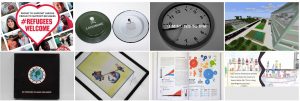
From Nicaragua to Ireland: Fairtrade Coffee and Global Solidarity
Fátima Ismael of Soppexcca, Cathal Murphy from Bewley’s and Fairtrade practitioner Kieran Durnien discuss 20 years of Fairtrade coffee solidarity linking Nicaragua and Ireland.
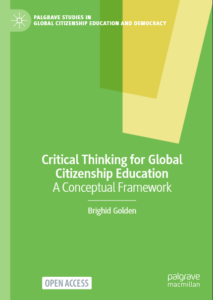
Critical Thinking for Global Citizenship Education
Join Brighid Golden for the launch of her latest book, ‘Critical Thinking for Global Citizenship Education: A Conceptual Framework’
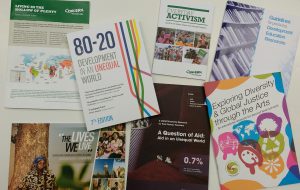
Your voice matters – 2026 user survey open
It’s January, its 2026, and we want to hear what you’d like us to feature or work on in 2026.
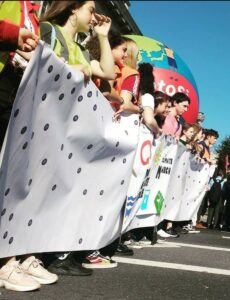
Calling Post Primary Teachers – Survey Participation Request
Your voice is vital in shaping the future of education for sustainable development in Ireland. Join a national survey for post primary teachers in October, led by DCU researcher Valerie Lewis
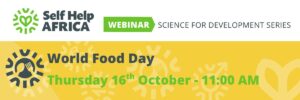
Webinar: Science for development on World Food Day
The webinar will feature YSTE projects, from Santa Sabina Dominican College (Dublin), Moate Community School (Westmeath) and CBS Thurles that focussed on nutrition and better food production, with Self Help Africa’s nutrition and gender specialist in Ethiopia, Sara Demissew.
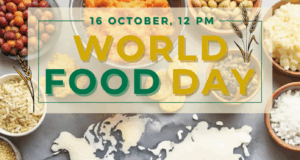
Student & teacher webinar: Food, hunger and SDG 2
Join the World Food Day webinar for post primary school students and teachers which will explore SDG 2: Zero Hunger.
